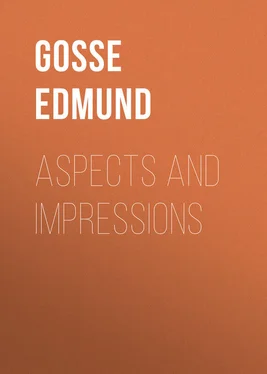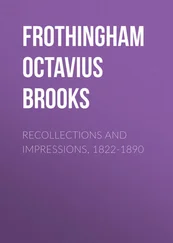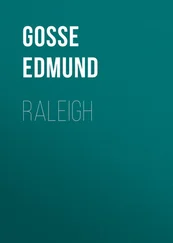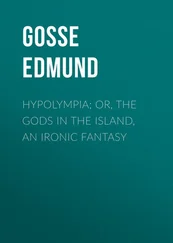Edmund Gosse - Aspects and Impressions
Здесь есть возможность читать онлайн «Edmund Gosse - Aspects and Impressions» — ознакомительный отрывок электронной книги совершенно бесплатно, а после прочтения отрывка купить полную версию. В некоторых случаях можно слушать аудио, скачать через торрент в формате fb2 и присутствует краткое содержание. Жанр: Критика, foreign_antique, foreign_prose, на английском языке. Описание произведения, (предисловие) а так же отзывы посетителей доступны на портале библиотеки ЛибКат.
- Название:Aspects and Impressions
- Автор:
- Жанр:
- Год:неизвестен
- ISBN:нет данных
- Рейтинг книги:4 / 5. Голосов: 1
-
Избранное:Добавить в избранное
- Отзывы:
-
Ваша оценка:
- 80
- 1
- 2
- 3
- 4
- 5
Aspects and Impressions: краткое содержание, описание и аннотация
Предлагаем к чтению аннотацию, описание, краткое содержание или предисловие (зависит от того, что написал сам автор книги «Aspects and Impressions»). Если вы не нашли необходимую информацию о книге — напишите в комментариях, мы постараемся отыскать её.
Aspects and Impressions — читать онлайн ознакомительный отрывок
Ниже представлен текст книги, разбитый по страницам. Система сохранения места последней прочитанной страницы, позволяет с удобством читать онлайн бесплатно книгу «Aspects and Impressions», без необходимости каждый раз заново искать на чём Вы остановились. Поставьте закладку, и сможете в любой момент перейти на страницу, на которой закончили чтение.
Интервал:
Закладка:
THE abrupt change in Henry James's outlook on life, which was the result of his violent disillusion with regard to theatrical hopes and ambitions, took the form of a distaste for London and a determination, vague enough at first, to breathe for the future in a home of his own by the sea. He thought of Bournemouth, more definitely of Torquay, but finally his fate was sealed by his being offered, for the early summer months of 1896, a small house on the cliff at Point Hill, Playden, whence he could look down, as from an "eagle's nest," on the exquisite little red-roofed town of Rye and over the wide floor of the marsh of Sussex. When the time came for his being turned out of this retreat, he positively could not face the problem of returning to the breathless heat of London in August, and he secured the Vicarage in the heart of Rye itself for two months more. Here, as earlier at Point Hill, I was his guest, and it was wonderful to observe how his whole moral and intellectual nature seemed to burgeon and expand in the new and delicious liberty of country life. We were incessantly in the open air, on the terrace (for the Vicarage, though musty and dim, possessed, like the fresher Point Hill, a sea-looking terrace), sauntering round the little town, or roving for miles and miles over the illimitable flats, to Winchelsea, to Lydd, to the recesses of Walland Marsh – even, on one peerless occasion, so far afield as to Midley Chapel and the Romneys.
Never had I known Henry James so radiant, so cheerful or so self-assured. During the earlier London years there had hung over him a sort of canopy, a mixture of reserve and deprecation, faintly darkening the fullness of communion with his character; there always had seemed to be something indefinably non-conductive between him and those in whom he had most confidence. While the play-writing fit was on him this had deepened almost into fretfulness; the complete freedom of intercourse which is the charm of friendship had been made more and more difficult by an excess of sensibility. Henry James had become almost what the French call a buisson d'épines . It was therefore surprising and highly delightful to find that this cloud had ceased to brood over him, and had floated away, leaving behind it a laughing azure in which quite a new and charming Henry James stood revealed. The summer of 1896, when by a succession of happy chances I was much alone with him at Rye, rests in my recollection as made exquisite by his serene and even playful uniformity of temper, by the removal of everything which had made intercourse occasionally difficult, and by the addition of forms of amenity that had scarcely been foreshadowed. On reflection, however, I find that I am mixing up memories of June at Point Hill and of September at the Vicarage with the final Rye adventure, which must now be chronicled. When he was obliged to turn out of his second refuge, he returned to London, but with an ever-deepening nostalgia for the little Sussex town where he had been happy. In the following summer the voice of Venice called him so loudly that he stayed in London longer than usual, meaning to spend the autumn and winter in Italy. He thought meanwhile of Bournemouth and of Saxmundham. He went on his bicycle round the desolate ghost of Dunwich, but his heart was whispering "Rye" to him all the while. Nothing then seemed available, however, when suddenly the unexpected vacancy of the most eligible residence conceivable settled, in the course of a couple of days, the whole future earthly pilgrimage of Henry James. The huge fact was immediately announced in a letter of September 25th, 1897:
I am just drawing a long breath from having signed – a few moments since – a most portentous parchment: the lease of a smallish, charming, cheap old house in the country – down at Rye – for 21 years. (It was built about 1705.) It is exactly what I want and secretly and hopelessly coveted (since knowing it) without dreaming it would ever fall. But it has fallen – and has a beautiful room for you (the King's Room – George II's – who slept there); together with every promise of yielding me an indispensable retreat from May to October (every year). I hope you are not more sorry to take up the load of life that awaits, these days, the hunch of one's shoulders than I am. You'll ask me what I mean by "life." Come down to Lamb House and I'll tell you.
There were the most delightful possibilities in the property, which included a small garden and lawn, the whole hemmed in by a peaceful old red wall, plentifully tapestried with espaliers. The noble tower of Rye church looked down into it, and Henry James felt that the chimes sounded sweetly to him as he faced his garden in monastic quiet, the little market-town packed tightly about him, yet wholly out of sight.
Meanwhile the intellectual release had been none the less marked than the physical. The earliest result of his final escape from the lures of the Vivian of the stage had been the composition of a novel, The Spoils of Poynton , in a manner entirely different from that of his earlier long romances. This was published in 1897, and in the meantime he had set to work on a longer and more ambitious romance, What Maisie Knew . In these he began the exercise of what has been called his "later manner," which it would be out of proportion to attempt to define in a study which purports to be biographical rather than critical. It is enough to remind the reader familiar with Henry James's writings that in abandoning the more popular and conventional method of composition he aimed at nothing less than a revolution in the art of the novelist. While thus actively engaged in a new scheme of life, he found it more and more difficult to break "the spell of immobility" which enveloped him. He who had been so ready to start on any call of impulse in any direction found it impossible to bring himself to respond, at Christmas, 1897, to the appeal of Madame Alphonse Daudet to come over to Paris to grace the obsequies of her illustrious husband. The friends – and the author of Jack was the most intimate of James's Parisian acquaintances – had not met after 1895, when Daudet had spent a month in London mainly under the charge of Henry James, since which time the French novelist's life had been sapped and drained from him by a disease the symptoms of which were beginning to be painfully manifest when he was with us in London. The old French friends were now disappearing. Their places in Henry James's affection were partly filled by Paul Bourget and by Maurice Barrès, whose remarkable and rather "gruesome" book, Les Déracinés , now supplied James with an endless subject of talk and reflection.
The first novel actually completed at Lamb House was The Awkward Age , which was ready for the printers early in 1898. The ecstasy with which he settled down to appreciate his new surroundings is reflected in that novel, where the abode of Mr. Longdon is neither more nor less than a picture of Lamb House. It was a wonderful summer and autumn, and, as Henry James said: "The air of the place thrilled all the while with the bliss of birds, the hum of little lives unseen, and the flicker of white butterflies." The MS. of The Awkward Age was no sooner finished than he took up the germ of an incident dimly related to him years before at Addington, by Archbishop Benson, and wove it into The Turn of the Screw , a sort of moral (or immoral) ghost story which not a few readers consider to be the most powerful of all his writings, and which others again peculiarly detest. I admit myself to be a hanger-on of the former group, and I have very vivid recollections of the period when The Turn of the Screw was being composed. The author discussed it with a freedom not usual with him. I remember that when he had finished it he said to me one day: "I had to correct the proofs of my ghost story last night, and when I had finished them I was so frightened that I was afraid to go upstairs to bed!"
Читать дальшеИнтервал:
Закладка:
Похожие книги на «Aspects and Impressions»
Представляем Вашему вниманию похожие книги на «Aspects and Impressions» списком для выбора. Мы отобрали схожую по названию и смыслу литературу в надежде предоставить читателям больше вариантов отыскать новые, интересные, ещё непрочитанные произведения.
Обсуждение, отзывы о книге «Aspects and Impressions» и просто собственные мнения читателей. Оставьте ваши комментарии, напишите, что Вы думаете о произведении, его смысле или главных героях. Укажите что конкретно понравилось, а что нет, и почему Вы так считаете.












